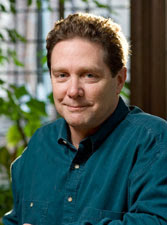by Lucy | Mar 22, 2018 | biblical counseling, Counselor Resources, emotions, thoughts
 Triggers: Often counselees speak of triggers, whether or not they have post-traumatic stress. It’s a societal buzzword. So what are triggers? How does the Bible term them? And what can you help your friend, counselee, or yourself handle them? The guest post by Andrea Lee whose article appeared first here on The Biblical Counseling Coalition website and is used with permission.
Triggers: Often counselees speak of triggers, whether or not they have post-traumatic stress. It’s a societal buzzword. So what are triggers? How does the Bible term them? And what can you help your friend, counselee, or yourself handle them? The guest post by Andrea Lee whose article appeared first here on The Biblical Counseling Coalition website and is used with permission.

As a biblical counselor, I often hear about “triggers.” These are situations, locations, words, and people that remind counselees of past pain or current heartache. These triggers threaten to engulf counselees in an avalanche of despair, anger, or anxiety. What is a trigger and how can a biblical counselor engage with people who seem to be subject to them?
Counselees view a trigger as an event or circumstance that is the cause of a particular response or emotional process
Click & Tweet!
. As a counselor to women, here are some situations I have encountered:
- It could be a mom who identifies her rambunctious toddler as a “trigger” – one energetic outburst and the mom is overwhelmed with exhaustion and despair.
- It could be a wife whose husband’s typical response in conflict is a “trigger”- one phrase or condescending look and the wife is flooded with anger or hopelessness.
- Or it could be a young single woman who sees Friday nights as a “trigger” – she has been alone and miserable for many Fridays and now dreads the end of every week.
In seeking to help these women, I explain to them that triggers do not cause their response. The so-called “trigger” is a reminder that tempts them toward a well-worn destructive thought pattern.
Click & Tweet!
The reminder is often associated with pain: previous failures, past hurts, or current broken relationships. Women feel helpless because they don’t know how to stop responding in a destructive way. I love to give hope by showing a new perspective on these moments.
When we label someone or something a “trigger,” we shift the place of emotional control from our own heart to an external object. The connection between event and emotion can mistakenly lead us to think the trigger is a cause. Actually, we have developed habits of thoughts in response to pain that continue to lead to these predictable emotional conditions. Our despair, anxiety, and anger reveal that we are ignoring God and disregarding His promises as we respond to the brokenness around us or in us. Instead of thinking in terms of triggers, I want counselees to see certain situations and people as cues – signals, prompts, and reminders – to begin a series of thoughts that are radically God-oriented. This shift in vocabulary begins to engage counselees in a process of repentance and trust when they are troubled by triggers.
Step 1: Recognize the triggers and the accompanying thinking
Women often know what launches them into a familiar path of pain. But here are questions that can help:
- What was the stimulus that began this descent into despair, anxiety, or anger?
- When do I have a disproportionate reaction to a situation or a person?
- Are others puzzled by the intensity of my response or mood swing?
Once the triggers are identified, it is vital to have the counselee write down their exact thoughts. You will probably hear some of these in the counseling room. For example:
- I can’t believe this is happening again. I can’t take it anymore. What if this never gets better?
- I’m stuck. Nothing ever changes. It’s unfixable. I’ll never change.
- Also I can’t breathe. I have to do something right now. I can’t stand the pressure.
If your trigger is related to an experience of sexual and/or physical abuse, please seek further help from a biblical counselor. You will also want to explore In the Aftermath, by Pam Gannon and Beverly Moore and Putting the Past in Its Place, by Steve Viars. If you are struggling with triggers associated with PTSD, Greg Gifford’s book, Helping Your Family Through PTSD, is a valuable resource.
Step 2: Repent by evaluating three categories
 God is gracious to help us identify triggers. It is a gift because it alerts us to repent in specific, concrete areas. Since repentance is the key to change, this gives us hope.[1] Repetitive elements in the counselee’s thinking will reveal weaknesses in theology and worship. Counselees often minimize or ignore God’s goodness, God’s presence, and God’s perfect ways.
God is gracious to help us identify triggers. It is a gift because it alerts us to repent in specific, concrete areas. Since repentance is the key to change, this gives us hope.[1] Repetitive elements in the counselee’s thinking will reveal weaknesses in theology and worship. Counselees often minimize or ignore God’s goodness, God’s presence, and God’s perfect ways.
Psalm 40:1-3 is a great passage to address these areas of unbelief.
- God IS good: “As for you, O Lord, you will not restrain your mercy from me; your steadfast love and your faithfulness will ever preserve me!”
- God IS present: “As for me, I am poor and needy, but the Lord takes thought for me. You are my help and my deliverer; do not delay, O my God!”
- And God IS working: “He inclined to me and heard my cry. He drew me up from the pit of destruction…He put a new song in my mouth”
The Psalmist doesn’t believe these things because he has a perfect past or a blameless record (see Psa. 40:12), but because God gives salvation out of His great mercy in Jesus Christ.
A prayer of repentance may sound something like this:
- Lord, this thought process reveals that I am not believing the truth about who you are. Please forgive me for going astray after a lie (Ps. 40:4).
- My thinking has become futile because I am not honoring you or thanking you (Rom. 1:21).
- I am in a pit of destruction and a miry bog of my own making when I continue to think hopeless, godless thoughts (Ps 40:2-3).
- Instead of spinning into despair and anxiety, help me to wait patiently for you and keep crying out to you. Thank you for your forgiveness and help.
Step 3: Mobilize your cue
Finally, help counselees prepare specific thoughts they will embrace the next time a trigger comes. Identify one thought that most fuels the downward cycle and prepare a God-honoring thought that will replace it. Develop simple statements that can be easily memorized and repeated. When they experience a trigger, the counselee should:
-
Engage in gratitude:
- Thank God for this opportunity to worship Him and to be changed.
- Thank Him for the reminder that we all need a Savior and God has provided one.
- And thank God for the reminder of past sin or hurt because it humbles us and pushes us to know Christ better
-
Embrace a promise:
- God’s grace is up to the challenge.[2]
- God will give me all the grace and strength I need to obey Him (1 Cor. 10:13, 2 Cor. 9:8).
- Also God hears my cries; He is working and He is good (Ps. 40).
There is great joy and hope in moving from trigger to cue by specific repentance and obedience. As you help counselees to recognize, repent, and then prepare for specific situations, you are equipping them to worship God and love others with greater wisdom and diligence. Painful reminders in life can be a cue to trust God by remembering and rehearsing His goodness, His presence, and His perfect ways.
Questions for Reflection
What triggers trouble your counselees? What thoughts fuel the negative spiral? And what cues have you mobilized in your counseling that have been particularly effective?
[1] Heath Lambert, “Die to Self and Grow in Love,” (presentation, Association of Certified Biblical Counselors Annual Conference, 2013; https://biblicalcounseling.com/product/die-to-self-and-grow-in-love-heath-lambert-2/)
[2] Kevin Carson, “Five Favorite Passages in Biblical Counseling” (presentation, Biblical Counseling and Discipleship Training, Atlanta, GA, Jan. 27, 2018).

About Andrea Lee
Andrea Lee lives in Atlanta, Georgia with her husband of 11 years. She serves women in the church and community as a biblical counselor.
Counselor, would you like to join Heart2Heart Counselor Directory too? Choose a free listing (or an upgrade). Make connections with like-minded counselors and new counselees. Learn more.
Counseling Hearts to Hope,

by Lucy | Mar 19, 2018 | biblical counseling, emotions, relationships |
There’s an addict addict in your home, and he (or she) is a loved one, and you need help. So what should you do? Guest writer Julie Ganschow, a biblical counselor listed on Heart2Heart Counselor Directory, shares understanding and direction. Her article appeared first here on her website and is used with permission.

When you learn your loved one is an addict it rocks your world. The first thing you have to understand is that life will never be the same. Whether the addict is your spouse or your child, your life is now going to be different. I realize that is a rather hopeless statement on face value, but it doesn’t have to be.
Life not being the same doesn’t mean it will always be bad and chaotic; it means it will be different.
The realization that your spouse or child is an addict is horrifying and terrifying. Suddenly all the crazy things that have been happening make sense. Their moodiness, anger or rage, isolation, disappearing for periods of time, financial problems, secrecy, all these things come together in an ugly realization.
When you really think about it, life has not been “the same” for a while now. The difference is, now you can identify the reason why. Now you can make changes that will help you and your family—including the addict—to adjust to the changes.
Yes, You Can Move Forward
As terrifying as learning the truth about your loved one is, there is something strangely comforting about understanding the reason behind all the crazy things that have been happening in your lives. Now you can arm yourself and become informed about what you are dealing with. You can learn how to respond and what not to do. So while life will never be the same, and no one ever wishes for these kinds of changes, you can now at least meet life on life’s terms and deal in reality. Accept what you are dealing with and that you will grieve and endure suffering in this process.
You have taken steps into suffering and sorrow already. Having a loved one that is addicted to alcohol or drugs tends to be seriously distressing.
Having an addict in the family causes problems in a wide range of areas. An adage that you need to remember is, “Addicts don’t have relationships. They take hostages.” An addict is interested in having a relationship with only the substances that he ingests. There is no room in his heart for a relationship with any person that will detract or distract him from pursuing what he really loves: His addiction.
The people in the addict’s life are tools to help him get what he wants which is drugs or alcohol. People are there to be used. I won’t deny that the addict may still love you on some level, but if the choice is you or the substance he ingests, any good addict will choose the substance over you. This is why in families the addict can cause such a disruption. They are highly manipulative, skilled in lying, and playing on the sympathetic heartstrings of those who love them. When they are denied what they want, you see their true love and allegiance come out as they scream, and tantrum, and threaten, and rage against anything and everyone that gets in the way of them getting high.
Why ‘Stop it’ Won’t Work
The addict’s life becomes all about self-gratification – meeting the felt needs of excitement, pain relief, escape, or comfort. They are inward focused and all that matters is getting their needs met in whatever way possible, whether it is begging, borrowing or stealing from you. The pursuit of self-gratification becomes all-consuming.
We consider attaching the label “addict” when a person’s desires have become idols. The addict is an idolater because he worships something other than God.
We have been created to worship God, but the addict’s sinful lusts have driven him to worship and idolize other things; the things of the world. This is why having an addiction is a kind of worship and why addiction is a worship disorder. The addict has a heart/soul problem, not a medical or psychological problem.
Continually feeding the idol of drugs or alcohol will eventually create a physical dependency, but the heart which Jeremiah. 17:9 identifies as self-focused, deceptive and desperately wicked, has been enslaved long before the body becomes addicted. The addict’s heart—his thoughts, beliefs, and desires—were hooked first.
The mind is focused on the flesh. Therefore it becomes hostile to the things of God, and the person becomes a commandment breaker and very often a lawbreaker (Romans 5:8).
“Addiction” becomes a self-perpetuating cycle of self-worship and self-abuse as the addict becomes a slave of self. What he or she once controlled, now controls them.
Click & Tweet!
What You Can Do
While you can’t stop them from sinning, you also don’t want to continue to do things that will enable them to get high or drunk. The phrase “don’t be an enabler” may be familiar to you as coming from the 12-step world of Al-Anon. Don’t discard the principle because you don’t like the source. Other words for enabling are: allowing, permitting, empowering, aiding, assisting, facilitating, making possible. In other words, don’t willingly help them to get high, and don’t do things that make it easier for them to do so.
Make financial boundaries: Implement boundaries to detach yourself financially from your addicted loved one. You do not control whether the addict uses or not, but you can control whether (or how much) you contribute to funding the addict’s chemical use.
Do not give money to your addicted loved one. (Most people I counsel this way refuse to implement financial boundaries. The result is usually more of the same.) Do not provide vehicles, insurance funding, or tuition to addicted persons. I commonly see parents let addicted children live in their homes rent free. Ousting the addict into independent living will not necessarily stop chemical use but it will require them to divert more money from funding their addiction to paying for their independent room and board.
If your son, daughter, or spouse makes the decision to live as a homeless person, it will hurt you terribly.
But please understand that they will do this until it is time for them to change. You cannot change them or those circumstances. It will not help them for you to give them a bed in your home if they continue to live the lifestyle of an addict. In fact, you will be hurting them.
Allow natural consequences: The emotional struggle to truly turn the addicted loved one over to God and the fearful “natural consequences” that the addict may encounter (or possibly die from) such as crime, personal neglect, or intoxicated accidents commonly prevents family and friends of the addicted person from truly “letting go.”
This requires a leap of faith, and constitutes a trial for friends of the addicted person.
I have heard transformed (repentant) former addicts refer to it as “coming to the end of one’s self.” Often a similar dynamic holds true for the family and friends of the addicted person, and their unwillingness to trust God in the full vent outcome for the addicted person. This may seem harsh and unloving, but I assure you, pain is a strong motivator for change.
If you are in such circumstances, please seek help from a knowledgeable Biblical Counselor for yourself and your other family members to deal with the pain and resulting emotions from having an addicted-idolater in your family.

Resources for YOU!
Books:
Divine Intervention: Hope and Help for Families of Addicts
The Heart of Addiction by Mark E. Shaw
Addictions: A Banquet in the Grave by Ed Welch
Crossroads: A Step-by-Step Guide Away from Addictions by Ed Welch
Counseling:
If your loved one is an addict, you are on a hard road and you need help too. Contact me to schedule a no-cost 15-minute consultation to see how biblical counseling can help you.
Counseling Hope to Your Heart,

by Lucy | Dec 28, 2017 | emotions, relationships
 Perfectionism is an impossible standard! For you and me, that is. God is perfectly perfect!
Perfectionism is an impossible standard! For you and me, that is. God is perfectly perfect!
But to attain perfectionism, you may drive yourself nuts. Or you may face-plant into the wall of “I cannot do it” and give up and retreat. You may even find a frenemy in dark chocolate. This is my go-to happy place. What’s yours?
Click & Tweet!
Either way, all-or-nothing thinking turns into anxiety, even anger and hopelessness.
Jana, a mother of three boys and a nurse, worked part-time in the evening, and during the day she had the family on a tight schedule in order to get everything done: piano lessons and soccer practice for the kids and a book club and Zumba for her. When her all-or-nothing thinking turned into yelling–something she swore she’d never do when she became a mom–she didn’t see that her perfectionism played into the family tension. A wise counselor compassionately and truthfully pointed it out, and she agreed her heart needed to change.
Have you ever wanted to do it all or think you should do it all?
Click & Tweet!
Have you based your worth and success on how well you measure up to your standards or fulfilling your expectations?
- When you are driven to achieve and overdo, you live in fear that there is always something more you can do, another phone call to make, another website to check, another friend to check in on.
- When you hold exceptionally high expectations for yourself (or your family or coworkers), you may come across as pushy and demanding. Your relationships may suffer.
- When you compare your accomplishments to others, you may feel defeated and get grumpy or throw a pity party. No one shows up to pity parties. Too depressing!
Signs of Perfectionism
The all-or-nothing thinking of perfectionism overwhelms a person because, as I mentioned up top, it’s a myth. No one is perfect but God!
“Your heavenly Father is perfect.” Matthew 5:48, ESV
Very often someone with all-or-nothing thinking suffers from anger, anxiety, depression, or fatigue. Trying to keep up with overwhelming perfectionism is daunting. You just can’t do it. No one can. That you cannot be perfect doesn’t mean you are “less than” or “not enough.” It simply means you’re human.
Here are pictures of three signs of perfectionism.
Anger: When your perfect plans fall though, do you seethe or feel irritated? Do you lash out at a friend or family member? A common result: difficult relationships! Think about it. You don’t like anger directed at you and you may step away from an angry person or not return her phone calls. Proverbs 15:1 says,
A soft answer turns away wrath, but a harsh word stirs up anger.
Anxiety: Do you feel uptight and nervous when you think about all you need to do? Do you worry that you’ll fail? Sometimes anxious people have physical symptoms such as nausea, insomnia, headaches, and fatigue, even panic attacks. Others develop ulcers. Talk with your medical doctor about physical manifestations of anxiety.
Depression: Do your unmet desires lead to sadness and self-recriminations? Are you disappointed with yourself that you failed to meet your high expectations? Do you say mean things to yourself, like “I’m a loser”? Depression feels like sadness, despair, hopelessness. Sometimes it has an organic cause, such as hormone imbalance. Again, talk with your medical doctor about physical causes of depression.
Out of the Perfectionism Trap
Your way out of perfectionism is to make a heart change and to look to your Creator for the answer.
Click & Tweet!
Here are 3 ways to end perfectionism:
Click & Tweet!
1. Accept the invitation to rest.
May I suggest that you write the verse below in a journal or your electronic device and read it daily?
Come to me, all who labor and are heavy laden, and I will give you rest.
Take my yoke upon you, and learn from me,
for I am gentle and lowly in heart, and you will find rest for your souls.
For my yoke is easy, and my burden is light. Matthew 11:28-30, ESV
When you get to the end of your abilities and energy, you need rest. Your mind and your body. You feel depleted and weary. The question is, how will you respond to this invitation? Do you value yourself and your family enough to rest?
2. Ask yourself a few questions.
To get to the heart of your perfectionism, ask yourself questions and jot down your answers. Ask yourself:
- Who am I trying to please? My boss, my friends, my parents, myself, God?
- Is my all-or-nothing thinking all about getting other people to accept me or to impress them?
- Do I think I can do life without God? That I don’t need him?
Now read your answers and look for a pattern. Is your pattern to please others or to get attention? Do you see another pattern? How can you change your thinking so that your thougts align with God’s?
3. Love God above all else.
You’re probably familiar with the Great Commandment.
You shall love the Lord your God with all your heart and with all your soul and with all your strength and with all your mind, and your neighbor as yourself. Luke 10:27, ESV
When you love God above all else, your priorities and motivations change. You are more concerned with pleasing God who loves you lavishly than with pleasing yourself.
You’ll discover that you’ll remove some items from your calendar and rethink the best use of your time and talents.
Whatever you do, work heartily, as for the Lord and not for men. Colossians 3:23, ESV
Rethinking the best use of your time and talents means establishing God-honoring goals for life in every area: spiritual, family, social, intellectual, physical, occupational, financial, and emotional.
I invite you to use this download to help you plan your priorities for the purpose of loving God most of all. If you have questions or would like to set up a time to talk on the phone to see how biblical counseling would help you get out of the perfectionism trap, why not drop me a line here?
Counseling Hearts to Hope,

by Lucy | Dec 21, 2017 | biblical counseling, emotions
 Anger! Do you blow up or clam up when you’re mad? Anger is among the most common emotions you experience. And it is impatient! So would you like to know how to replace your mad with patience?
Anger! Do you blow up or clam up when you’re mad? Anger is among the most common emotions you experience. And it is impatient! So would you like to know how to replace your mad with patience?
Let all bitterness and wrath and anger and clamor and slander be put away from you, along with all malice. Be kind ot one another, tenderhearted, forgiving one another, as God in Christ forgave you. (Ephesians 4:31-32)
Root Cause of Anger
Anger surfaces when you a wrong–real or perceived. Here are a few examples. What would you add to this list?
- Your dog chews up your favorite shoes.
- Your 16 year old promises to clean her mess of a room but doesn’t.
- A girlfriend asks you to lunch and never shows.
- Your husband asks you to lie to his boss.
- Your job is “eliminated.”
Types of Anger
Have you heard someone say, “I never get angry,” and in the next breath, she complains or speaks in an irritated tone of voice?
It’s a misconception that anger is only “loud”–yelling, slamming doors, a cutting comment, rage. In truth, it may also be “quiet”–the silent treatment, gossip, self-pity, apathy. The former “blows up” while the latter “clams up.” Both are destructive.
When you’re angry, do you tend to blow up, clam up, or bounce between the two?
Click & Tweet!
Several years ago, I counseled a woman whose husband lost his well-paying job when the company learned he looked at pornography on his work computer. She never yelled. She never screamed. But she was red-hot angry inside. It showed up as headaches, sleeplessness, and worry.
Thankfully, she learnd the root of her anger and resolved it. Her husband was genuinely repentant, and she forgave him. And, most important, she handled her anger biblically. Among the verses she heeded was this:
Be angry and do not sin; do not let the sun go down on your anger (Ephesians 4:26).
Revealing Anger
A common assignment I give to counselees is keeping a thought journal. The journal I use helps them assess their anger, fear, or other difficult emotions. It also helps counselees make new, godly habits.
In counseling, I also ask questions that help reveal the reason behind the anger. Some are:
- What is going on that led to anger?
- How dis you react?
- What did you desire when you were angry? (Common ones are pride, people-pleasing, and security.)
- What were the consequences of your anger?
Resolving Anger
After you assess your anger, it’s time to turn from the false gods you identified in question 3 above. Then turn to Jesus: confess (agree with God) that you sinned, repent, and thank God for the forgiveness that Jesus provided through the cross.
Now choose to trust God and obey him. When you trust and obey, you’ll experience thankfulness as well as changes in your thoughts, emotions, and actions. And so peace and patience replace anger.
And the peace of God, which surpasses all understanding, will guard your hearts and your minds in Christ Jesus (Philippians 4:7).
As a result, your faith grows. Your contentment deepens. You have more patience too.
Click & Tweet!
God gives you everything you need to live a victorious, godly life free of any anger problem.
His divine power has granted to us all things that pertain to life and godliness, through the knowledge of him who called us to his own glory and excellence, by which he has granted to us his precious and very great promises, so that through them you may become partakers of the divine nature, having escaped from the corruption that is in the world because of sinful desire.
You get a taste of heaven now.
Click & Tweet!
And God keeps teaching you more about himself as patience replaces anger.
Sharing hope with your heart,

by Lucy | Oct 17, 2017 | biblical counseling, book reviews, emotions, identity in Christ
 Peace is a hot commodity today. We all want it in our anger-infused, Twitter-bombed world. But how?
Peace is a hot commodity today. We all want it in our anger-infused, Twitter-bombed world. But how?Biblical counselor and psychologist
Ed Welch offers hope for change for people who struggle with irritation and want peace. Really, who likes anger? And as
Welch sound-bites: To be angry is to destroy. Big Problem
Yes, anger pours out testy words.
Eye rolls and sighs reveal the simmer. Slammed doors shake homes and relationships. Anger may whisper or shout, but is almost always destructive. And Jesus had much to say about anger and its antitode:
God-honoring peace.Welch fills the pages with scripture passages and with instruction to overcome anger. His target:
the heart. His method: letting you see the yuck of anger and inviting you to want treasure in heaven most of all. It’s a self-versus-God attitude and choice, isn’t it?.
Hello, Peace!
On the path to peace, you’ll meet afresh the Prince of Peace: Jesus. You’ll also discover your need
to forgive. And pray. And bless an enemy. Welch suggests you read the meditations a day at a time. This way your mind and heart absorb all that is anger and hate it. You also learn to love peace and seek the Peace-Giver.
So if you’re sick of anger and want peace, read this little-big book–all 50 days.
Meet the Author

Edward T. Welch, M.Div., Ph.D., is a licensed psychologist and faculty member at the Christian Counseling & Educational Foundation (CCEF). He earned a Ph.D. in counseling (neuropsychology) from the University of Utah and has a Master of Divinity degree from Biblical Theological Seminary. Ed has been counseling for over thirty years and has written extensively on the topics of depression, fear, and addictions.
 Triggers: Often counselees speak of triggers, whether or not they have post-traumatic stress. It’s a societal buzzword. So what are triggers? How does the Bible term them? And what can you help your friend, counselee, or yourself handle them? The guest post by Andrea Lee whose article appeared first here on The Biblical Counseling Coalition website and is used with permission.
Triggers: Often counselees speak of triggers, whether or not they have post-traumatic stress. It’s a societal buzzword. So what are triggers? How does the Bible term them? And what can you help your friend, counselee, or yourself handle them? The guest post by Andrea Lee whose article appeared first here on The Biblical Counseling Coalition website and is used with permission. 
 God is gracious to help us identify triggers. It is a gift because it alerts us to repent in specific, concrete areas. Since repentance is the key to change, this gives us hope.[1] Repetitive elements in the counselee’s thinking will reveal weaknesses in theology and worship. Counselees often minimize or ignore God’s goodness, God’s presence, and God’s perfect ways.
God is gracious to help us identify triggers. It is a gift because it alerts us to repent in specific, concrete areas. Since repentance is the key to change, this gives us hope.[1] Repetitive elements in the counselee’s thinking will reveal weaknesses in theology and worship. Counselees often minimize or ignore God’s goodness, God’s presence, and God’s perfect ways.



 Perfectionism is an impossible standard! For you and me, that is. God is perfectly perfect!
Perfectionism is an impossible standard! For you and me, that is. God is perfectly perfect! Anger! Do you blow up or clam up when you’re mad?
Anger! Do you blow up or clam up when you’re mad? Peace is a hot commodity today. We all want it in our anger-infused, Twitter-bombed world. But how?
Peace is a hot commodity today. We all want it in our anger-infused, Twitter-bombed world. But how? Edward T. Welch, M.Div., Ph.D., is a licensed psychologist and faculty member at the Christian Counseling & Educational Foundation (CCEF). He earned a Ph.D. in counseling (neuropsychology) from the University of Utah and has a Master of Divinity degree from Biblical Theological Seminary. Ed has been counseling for over thirty years and has written extensively on the topics of depression, fear, and addictions.
Edward T. Welch, M.Div., Ph.D., is a licensed psychologist and faculty member at the Christian Counseling & Educational Foundation (CCEF). He earned a Ph.D. in counseling (neuropsychology) from the University of Utah and has a Master of Divinity degree from Biblical Theological Seminary. Ed has been counseling for over thirty years and has written extensively on the topics of depression, fear, and addictions.
